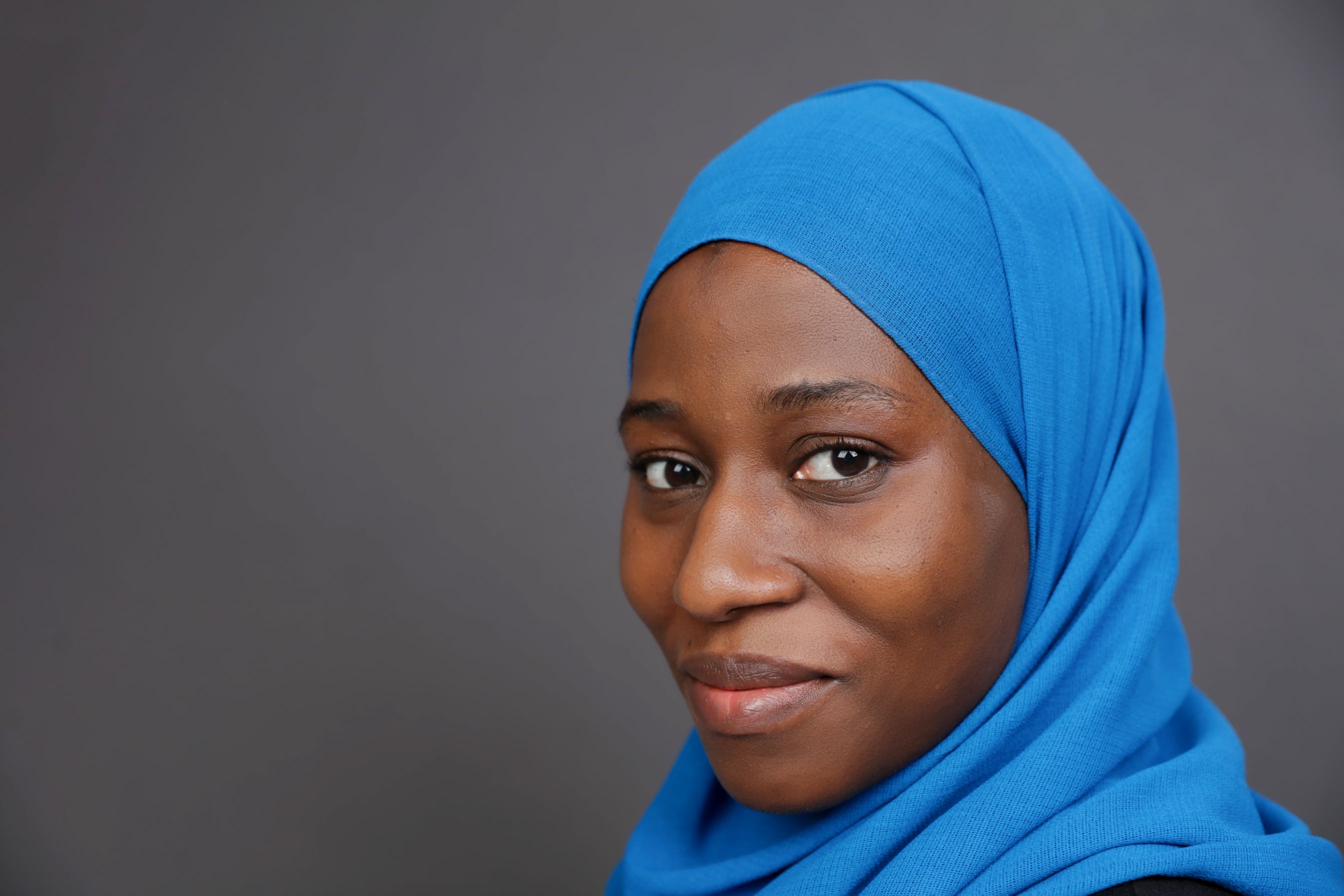Associate Professor Rabiat Akande has been named the 2025 Wilson H. Elkins Professor by the University System of Maryland (USM). She is the first professor from the University of Maryland Francis King Carey School of Law in history to receive the honor.
Funds from the Wilson H. Elkins Endowment support compelling projects with focus on research, scholarship, or community engagement that will allow the Elkins Professor to make an important contribution to the teaching, research, or public service mission of the institution and the entire USM. The Wilson H. Elkins Professorship was established in 1978 as the first permanently endowed, university-wide professorship at the University of Maryland.
Akande will receive an award of $80,000 over two years to support a research project titled “Law and the Histories of Empire.” Using an original methodology and research grounded in primary source and archival materials, the project will open a pathway to new conceptions and understandings of the relationship between law and colonial power.
“I want to draw on the history of colonialism to help us understand the dynamics of contemporary international law,” said Akande, “and to grapple with the issue of inequality in the contemporary global order.”
The project builds on Akande’s scholarship examining the complexities and ramifications of colonial powers governing multi-religious populations. Her 2023 book Entangled Domains: Empire, Law, and Religion in Northern Nigeria delves into the case of the British Empire’s rule over Nigeria’s Islamic population. Entangled Domains received Honorable Mentions for the 2024 ICON•S Book Prize, the 2024 Canadian Law and Society Association Wesley Pue Book Prize, and the 2024 African Studies Association Book Prize.
“Law and the Histories of Empire,” also the title of a course Akande teaches at Maryland Carey Law, will consider the relationship between law and colonialism in the context of the development of international law. The project will expand on Akande’s recent article, “An Imperial History of Race-Religion in International Law,” in which she argues that a limited focus on “racial othering” common in today’s conversations about international law misses the profound importance of “religious othering” in the history of global inequality.
The project also coincides with Akande’s ongoing book project, Malcolm X, Black Globalism, and the Human Rights Critique of Imperialism, for which she recently received a grant from the Social Sciences and Humanities Research Council. Akande’s research for the book investigates the globalist critique of imperialism that was central to Malcolm X’s thought in his last years and inspired by his visits to Africa and the Muslim World.
Akande and research assistants are tracking down archival material chronicling Malcolm X’s conversations with African leaders who were grappling with the realities of postcolonial governance and new forms of colonialism in the 1960s when many African nations gained formal independence. Sources are spread across Africa and North America. By tracing Malcolm X’s journey, Akande hopes to tap into his “thinking about attaining justice and egalitarianism by moving beyond what states can or cannot bestow on individuals to an idea of a human centered yet theologically grounded idea of rights that no one can give or take away.”
Akande is enthusiastic about the opportunities for collaboration and interdisciplinary connections the Elkins Professorship will enable, including partnerships with the Gibson-Banks Center for Race and the Law and Maryland Carey Law faculty, Professor Peter Danchin and Professor Matiangai Sirleaf, both of whom hold expertise in international law. Akande envisions an ambitious suite of programming, including workshops, lectures, and community conversations. She will also engage a Maryland Carey Law research assistant to work with her on an article about the colonial legal history of gendered islamophobia.
“I really want this to be an opportunity to engage with students and colleagues across the university and hopefully, indeed, with the broader community,” said Akande. "I am excited and honored by the incredible privilege to hold this chair.”
Akande joined the Maryland Carey Law faculty in 2024. She works in the fields of legal history, law and religion, constitutional and comparative constitutional law, Islamic law, international law, and (post)colonial African law and society. Her work has appeared in the American Journal of International Law, the Journal of Law and Religion, Law and History Review, Law and Social Inquiry, the Supreme Court Review, Die Welt des Islams, and in volumes by Cambridge University Press, University of Toronto Press, and Oxford University Press (forthcoming).
She chairs the international legal history project at the African Institute of International Law in Arusha with the support of the African Union and the Gerda Henkel Foundation, among other institutions.
Previously, Akande was assistant professor of law at Osgoode Hall Law School at York University in Canada. She earned LLM and SJD degrees from Harvard Law School, an LLB from the University of Ibadan, Nigeria, and her Qualifying Certificate from Nigerian Law School, in Lagos.

